Click to read the article in Turkish
The Lawyers' Commission of the October 10 Ankara Massacre Case have announced that they made an individual application to the Constitutional Court today (November 26) and appealed against the decision of the Court of Cassation's 1st Board of Presidents.
The 1st Board of Presidents of the Court of Cassation previously decided to quash the investigation file against prosecutors Ramazan Dinç and Tekin Küçük, who were investigating the Ankara Massacre.
Allegations found to have 'abstract content'
The lawyers have shared the following information:
"After the investigation files consisting of nine folders were submitted to the Ankara 4th High Criminal Court on October 16, 2019, which was four years after the massacre and 14 months after the conclusion of the first court case, it was revealed that the prosecutors of the October 10 Ankara Massacre hid the evidence that would enable the massacre to be solved.
"This situation was raised during the ongoing trial; we applied to to the Board of Judges and Prosecutors (HSK) on May 13, 2020 and filed a complaint against three investigation prosecutors Ramazan Dinç, Tekin Küçük and Derda Gökmen, who committed a crime by hiding the evidence.
"The complaints filed against prosecutors Ramazan Dinç and Tekin Küçük were sent by the HSK to the 1st Board of Presidents of the Court of Cassation on the grounds that they were still on duty.
"With its decision dated October 25, 2020, the Court of Cassation's 1st Board of Presidents have decided to quash the file against prosecutors Ramazan Dinç and Tekin Küçük on the grounds that 'the content of the complaint was related to an issue stemming from the exercise of judicial power and that the content of the allegations was abstract.'
"The proceedings of complaint against prosecutor Derda Gökmen are still pending before the Board of Judges and Prosecutors (HSK)."
'Prosecutors don't have such an authority'
The Lawyers' Commission of the October 10 Ankara Massacre have indicated that it was not possible for the Court of Cassation's 1st Chamber to not understand the subject of their complaints:
"The complaint is not about how the evidence added to the file was evaluated by the prosecutor's office. The complaint is also not about the physical absence of the investigation documents that were among the evidence collected during the investigation. The complaint is about the fact that the investigation documents consisting of nine folders are not among the evidence at all. No prosecutor has the judicial authority to 'hide' a file.
The fact that three prosecutors of the investigation had been unaware of the documents of an investigation into a massacre which claimed the lives of 100 people for four years constitutes - to say the least - the offense of misconduct in office. Our complaint is not based on a comment or evaluation. It is a highly concrete allegation about the fact that 9 folders of documents had been hidden for 4 years.
What was in the hidden files?
The related nine folders consisted of the documents about the initial period of the investigation. According to the lawyers' statement, the documents had the following information:
"The October 10 Ankara Massacre was organized by the Gaziantep ISIS cell; two suicide bombers set off for Ankara via highways at the night of October 9, 2015; the vehicle carrying the suicide bombers was driven by Halil İbrahim Durgun; Yakub Şehin escorted the vehicle. One of the most important defendants in the suicide bombers' arrival in Ankara was Yakub Şahin. In the related nine 'missing folders', there were investigation documents about defendant Yakub Şahin, who escorted the suicide bombers, and defendant Hüseyin Tunç, the transporter of the organization.
"From these documents, it is understood that Yakub Şahin and Hüseyin Tunç wanted to buy fertilizers on September 30, 2015, 10 days before the massacre; the seller, suspecting that the fertilizer might be used in terrorist acts, asked for an ID; after this, the two left the place and an investigation was launched after the fertilizer seller filed a criminal complaint.
"Hüseyin Tunç and Yakup Şahin were identified as part of the investigation. Written correspondence was sent to the Gaziantep Security Directorate Intelligence Department and Counterterrorism Department on October 2, 2015; however, no action was taken by the Security.
Considered by the fertilizer seller to 'possibly carry out a terrorist act', Yakup Şahin and Hüseyin Tunç were identified by the security 10 days before the massacre; but they could still play an active role in the October 10 Ankara Massacre. The fate of this investigation is not even clear. While the prosecutors of the investigation did not evaluate the information that would enable the massacre to be solved, they took no action to further this investigation.
"It was not possible for the complainants to access these files during the investigation as the decision of restriction taken as part of the investigation was imposed on complainants and their lawyers: The complainants' right to an effective participation in the investigation and their right to examine the evidence and prevent the collection or disappearance of the evidence were hindered by the decision of restriction taken by the prosecutors of the investigation on October 11, 2015.
"The reason for the restriction was that accessing the documents 'would jeopardize the aim of the investigation.' During the investigation process, which was carried out in a restricted manner, documents were hidden and the aim of the investigation was jeopardized by the prosecutors."
The Ankara Massacre
A suicide attack was launched against the Peace Rally in Ulus, Altındağ in the capital city of Ankara at around 10.04 a.m. on October 10, 2015. While 69 people lost their lives at the scene of the incident, a total of 103 people and two attackers lost their lives. After the bombs exploded, police officers used tear gas on the wounded and those who were trying to help them. As a result of this intervention, the wounded could not be referred to hospitals quickly and the survivors were also traumatized. The scene of the incident was not placed under protection and crime scene investigation teams and prosecutors did not come to the scene immediately. The teams arrived after about one and a half hours and deputy public prosecutor after two and a half hours. The indictment concerning the attack was approved on July 13, 2016. Accordingly, the order for the attack was given by Islamic State of Iraq and Syria's (ISIS) representative to Turkey, İlhami Balı. It was stated in the indictment that it was the same people who organized the Suruç bombing, which had killed 33 people. Fourteen suspects including Balı face from 5,083 to 7,820 years in prison on the charges of "attempted murder multiple times" and "attempting to annihilate constitutional order". The trial started on November 7, 2016. On August 3, 2018, the Ankara 4th Heavy Penal Court handed an aggravated life sentence for "violating the constitutional order" and 100 aggravated life sentences for "wilful murder" to nine defendants. They were also sentenced to 10,557 years in prison each for "attempted murder" (Abdulmubtalip Demir, Talha Güneş, Metin Akaltın, Yakup Şahin, Hakan Şahin, İbrahim Halil Alçay, Resul Demir, Hüseyin Tunç and Hacı Ali Durmaz). The trial of the fugitive defendants is continuing as their cases were separated. The families of the deceased hold a commemoration ceremony on the 10th day of every month in front of the Train Station. The peace rally participants who lost their lives in the massacre are: Abdülkadir Uyan, Metin Kürklü, Gökhan Akman, Orhan Işıktaş, Gülhan Karlı Elmascan, Yılmaz Elmascan, Nevzat Sayan, Bilgen Parlak, Hacı Kıvrak, Rıdvan Akgül, Rıdvan Akgül, Hacı Mehmet Şah Esin, Gökmen Dalmaç, Elif Kanlıoğlu, Hakan Dursun Akalın, Ercan Adsız, Ayşe Deniz, Berna Koç, Fatma Esen, Gülbahar Aydeniz, Eren Akın, Canberk Bakış, Tayfun Benol, Nizamettin Bağcı, Kasım Otur, Başak Sidar Çevik, Nilgün Çevik, Resul Yanar, Mehmet Ali Kılıç, Tekin Arslan, Sezen Vurmaz, Dilaver Karharman, Onur Tan, Umut Tan, Sarıgül Tüylü, Dilan Sarıkaya, Ali Kitapçı, İsmail Kızılçay, Muhammet Demir, Korkmaz Tedik, Veysel Atılgan, İbrahim Atılgan, Emine Ercan, Kübra Meltem Mollaoğlu, Meryem Bulut, Seyhan Yaylagül, Ebru Mavi, Ali Deniz Uzatmaz, Ziya Saygın, Vahdettin Özgan, Cemal Avşar, Ahmet Katurlu, Selim Örs, Azize Onat, Dicle Deli, Güney Doğan, Binali Korkmaz, Mehmet Zakir Karabulut, Leyla Çiçek, Metin Peşman, Mesut Mak, Adil Gür, Gökhan Gökbönü, Şebnem Yurtman, Osman Turan Bozacı, İdil Güneyi, Abdullah Erol, Mehmet Hayta, Özver Gökhan Arpaçay, Şirin Kılıçalp, Uygar Coşgun, Ahmed Alkhadi, Nurullah Erdoğan, Gözde Arslan, Aycan Kaya, Yunus Delice, Sevgi Öztekin, Mehmet Tevfik Dalgıç, Sevim Şinik, Emin Aydemir, Fatma Karabulut, Ramazan Tunç, Erol Ekici, Feyyat Deniz, Necla Duran, Osman Ervasa, Ramazan Çalışkan, Vedat Erkan, Abdülbari Şenci, Niyazi Büyüksütçü, Gazi Güray, Sabri Elmas, Erhan Avcı, Ümit Seylan, Serdar Ben, Nevzat Özbilgi, Hasan Baykara, Fatma Batur, Bedriye Batur, Ata Önder Atabay, Mustafa Budak, Ağa Bayar. |
(AS/SD)




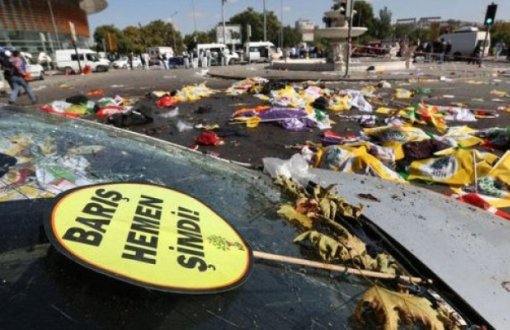
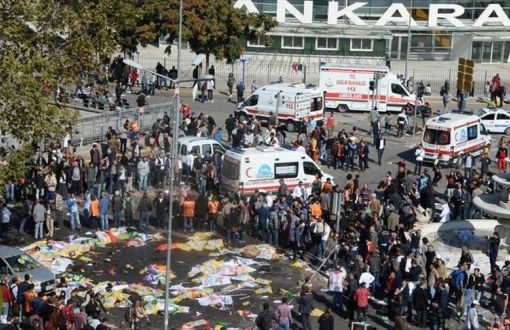
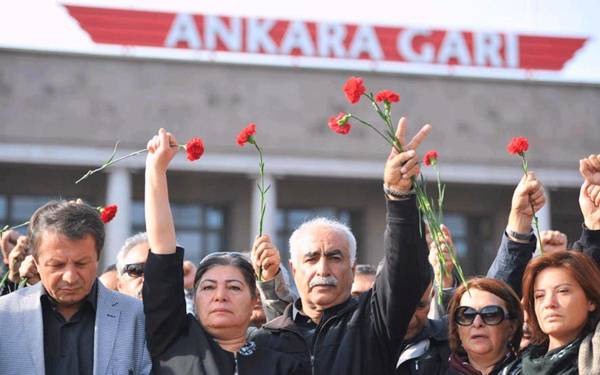
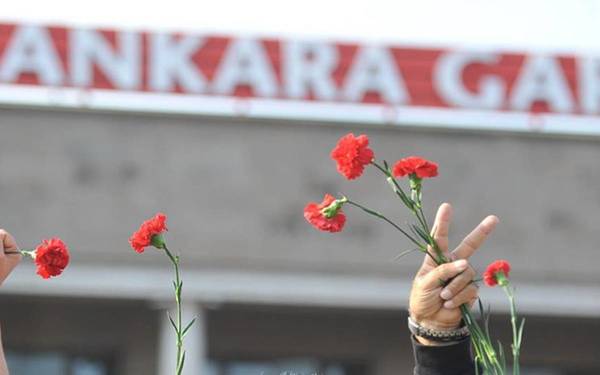
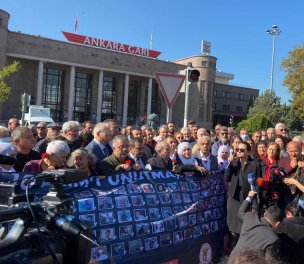
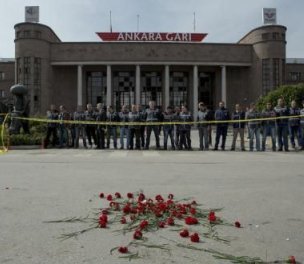
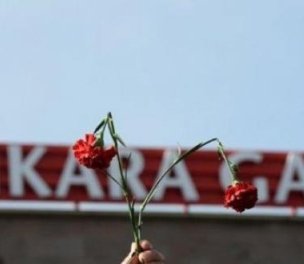
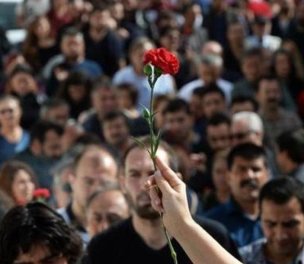
sa.jpg)